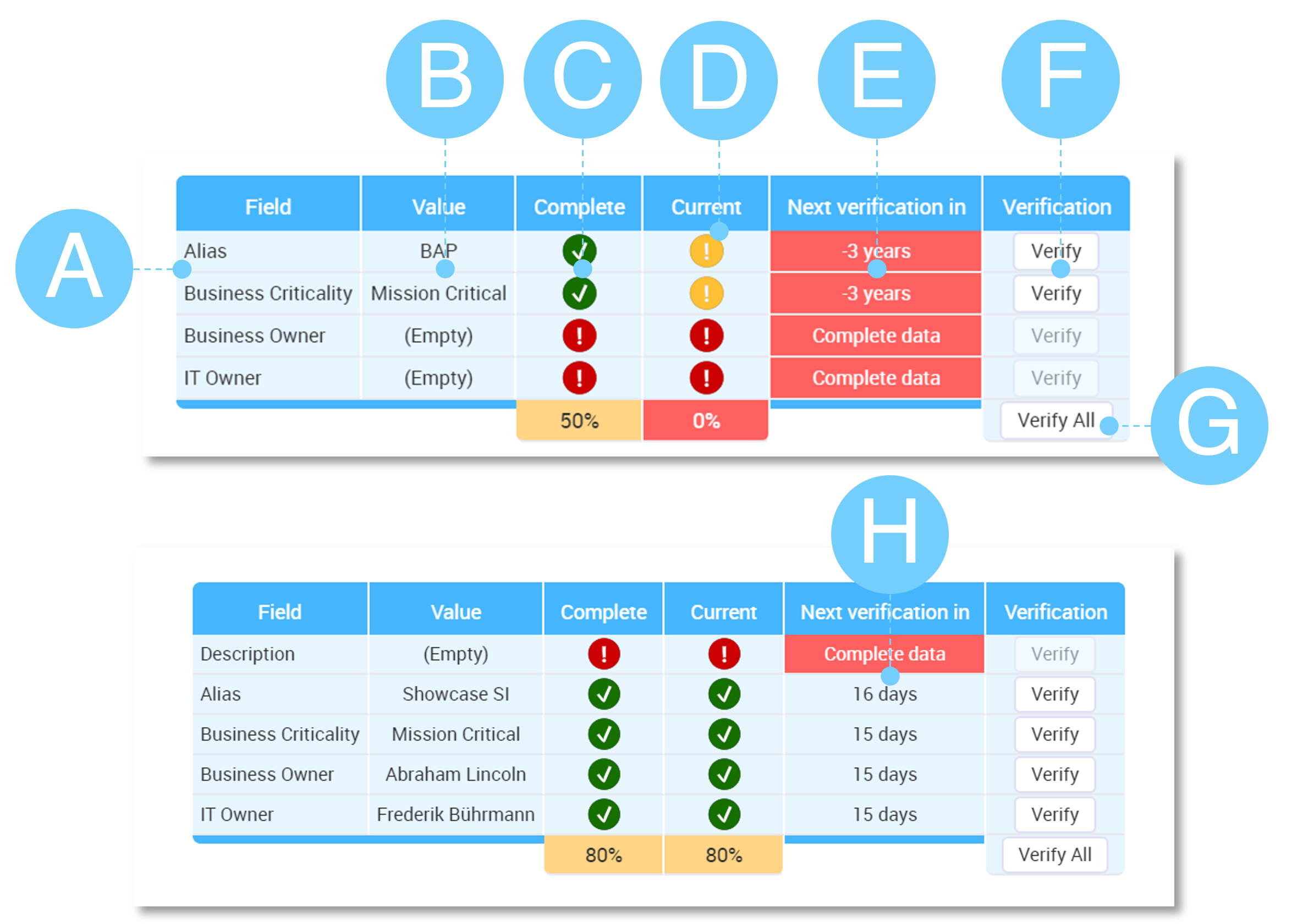Data Governance
UPMX follows a holistic approach to data quality to ensure that crucial data is always current and complete with supporting decisions in the enterprise. These two essential concepts are explained below:
Completeness means that the field content should not be empty, none, or 0 (zero). A UPMX workflow will notify the steward group members (specified in the Data Definition Scope) regularly to complete the missing data.
Currentness means that the field content needs to be reviewed regularly, e.g., every 90 days, to ensure that the entered field value is still current and correct. We can define the review cycle in the Data Definition Scope.
Data Definition Scopes are based on repository filters and tracked fields for a specific table. An example of a data definition scope could be "Critical Business Applications that are not obsolete".
Data Definition Scopes are configured by UPMX administrators as explained in Data Governance Portal. Responsible persons see the UPMX data quality widget shown below on elements where data quality is tracked by at least one scope.
See below how the widget is used to keep data current and correct:

A – Field tracked by Data Governance
B – Current value of the field or ‘(Empty)’
C – Completeness Indicator – either ‘Complete’ or ‘Missing’. Maintain the field and save the record to update.
D – Currentness Indicator – either ‘Current’, ‘Overdue’ or ‘Missing’/’No Value’
E – ‘Next verification in’ indicates when the next review is due according to the review cycle definition, or how many days/months/years it is overdue
F – Verification button to instantly verify the field content
G – ‘Verify All’ – instantly verifies all fields where a verification is due
H – Example of countdown to next due verification
Updated about 1 year ago
